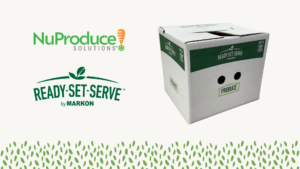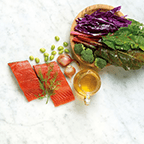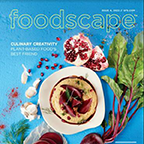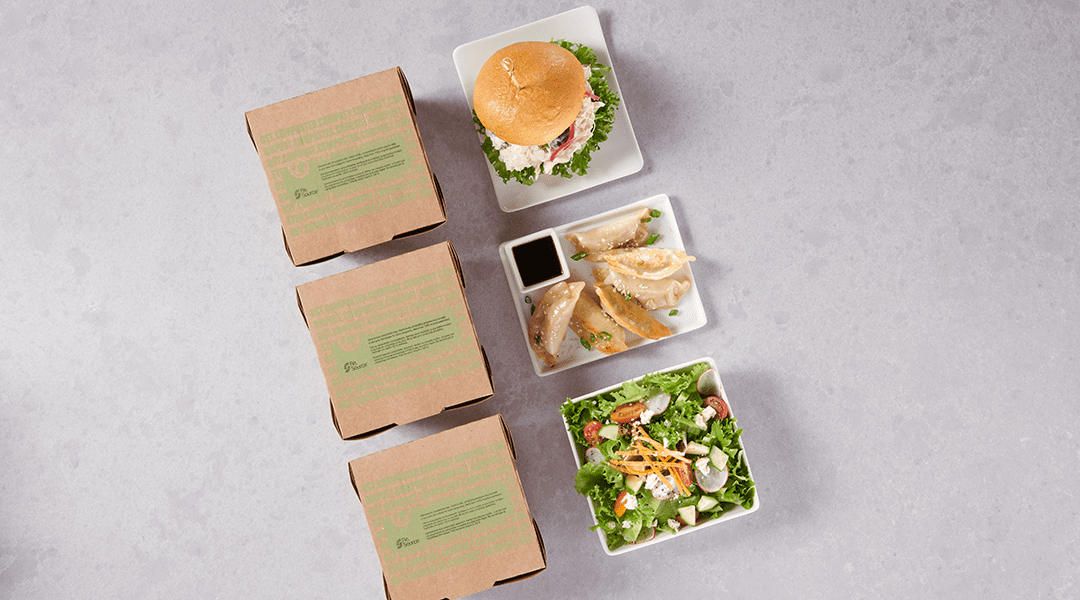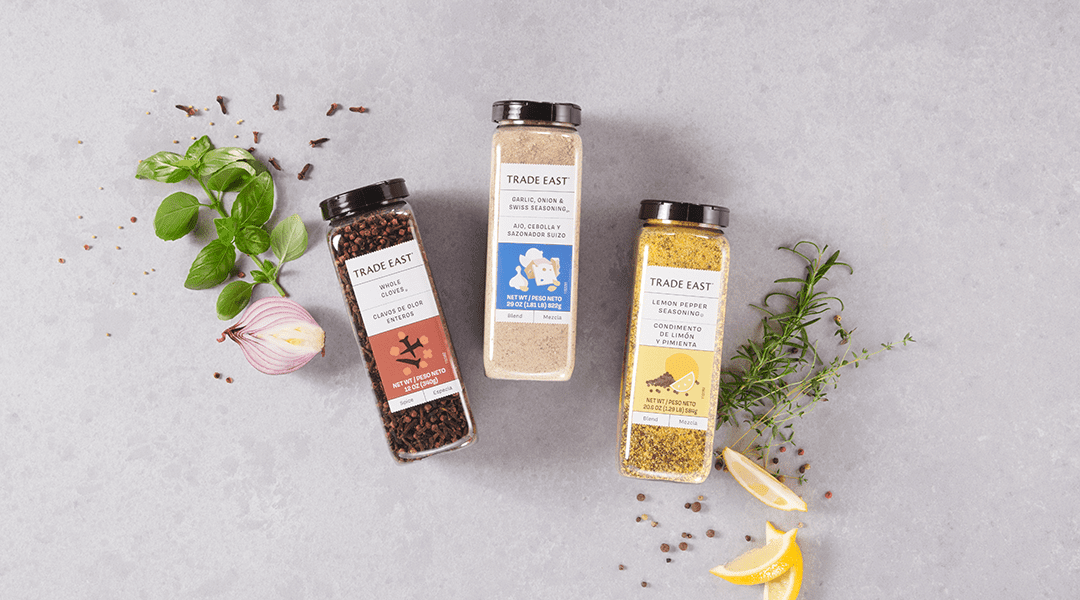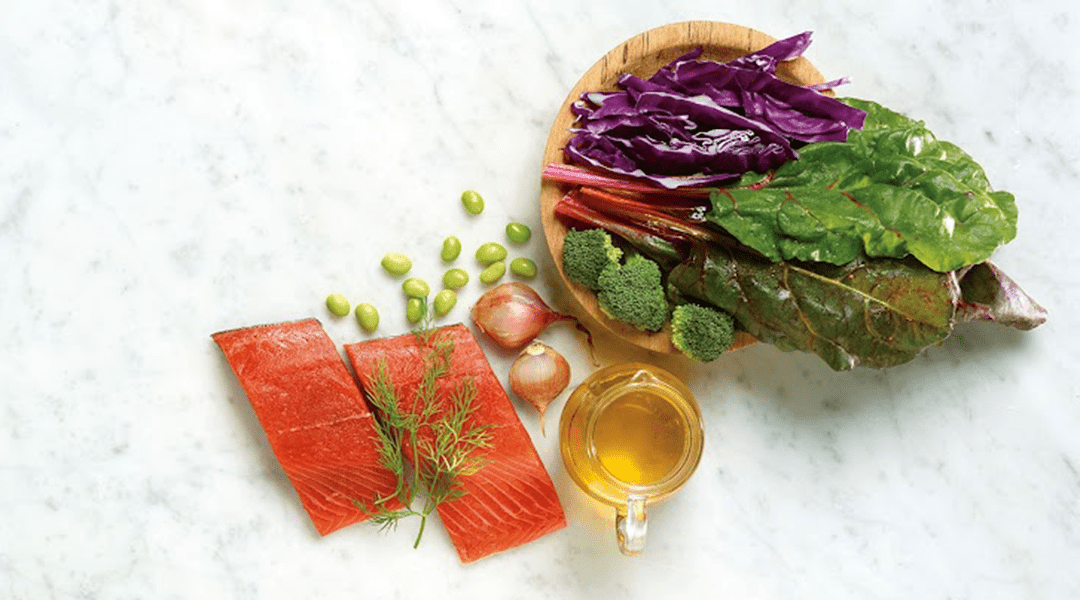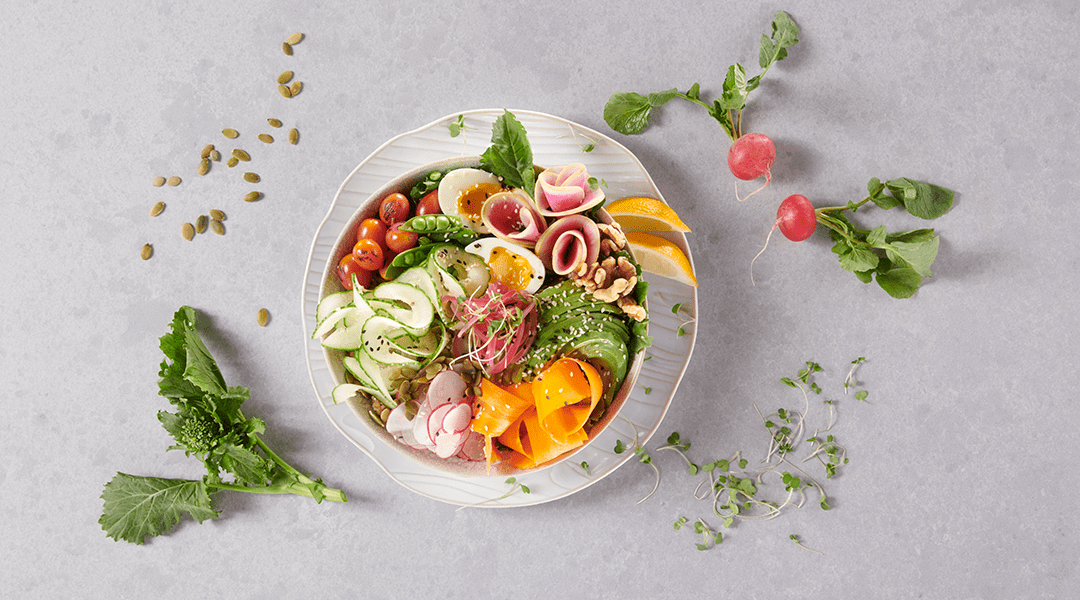College and university campuses are a melting pot of students from different places with different backgrounds, but they all seem to have one thing in common: they’re passionate. They care about the food they eat, and not just about its preparation or nutritional value. They also care about a bigger-picture issue—sustainability—that is shaping the way campus foodservice programs operate.
Because sustainability means something different to everyone, it’s tough to meet the expectations of each diner. From sourcing Fair Trade coffee to purchasing local products to conducting a recycling/composting program, the sustainability umbrella is pretty wide. Yet a number of campus dining programs recognize the need to promote the methods they employ to assure students, faculty and the community of their commitment to the planet and the future.
At the University of Notre Dame in South Bend, Indiana, Cheryl Bauer’s role centers on this tricky topic. As the Associate Director of Sourcing and Sustainability, she serves many people who arrive on campus with preconceived ideas about sustainability. While she monitors campus sustainability practices, a big part of her job is to educate students about what it means.
A holistic mindset
“You can’t just look at a food and know about sustainability—it takes a holistic approach,” she says. “Eggs from cage-free birds are popular, but we want students to understand why, and that has to do with the life of a chicken in the henhouse.”
Teaching students about sustainability starts with a definition—“Using today’s resources in a responsible way to ensure their availability for future generations.” This basic statement is one Creative Dining Services Director of Corporate Sustainability Janine Oberstadt uses as a foundation for the company’s work with campus dining rooms in numerous states.
“Increasingly, students are asking for transparency,” Oberstadt says. “At the campuses we serve, we’re not hearing the words ‘clean label’ as much as we’re hearing ‘real food,’ those that have not been processed or refined.”
The ‘local’ challenge
Vegetables fit this need nicely, she says, noting that there has been an uptick in vegetable consumption and veg-centric dining in higher education. “They eat vegetables not just because they look good or are healthy, but because they taste great.” Vegetables can be grown organically, they undergo minimal processing and they can be harvested locally.
Local foods are popular, Bauer admits, but not always a solution. At Notre Dame, students come from all over the nation and from other countries, bringing with them international tastes that local foods can’t deliver.
“We’d all like to eat local avocadoes and olives, but you’re not going to get them in our climate,” she says. “That’s why we advocate a holistic approach, using products and practices that meet sustainability needs in broader ways.”
The right fit
Notre Dame is building a matrix that will help determine ways sustainability fits their program. Examples include looking at minority ownership among suppliers, harvesting and transportation practices at farms and even energy usage and product waste in the campus kitchens.
Cleaning chemicals are one of the reasons why a matrix is important. Green-label cleaning products might seem like the best for sustainability, but a matrix that considers all factors could prove otherwise.
“Some green chemicals are not as effective as their counterparts, so you have to use more of them or clean twice to get the same result,” Bauer says. “Our matrix will help define those difficult areas.”
There are a variety of green chemical and cleaning solution products available, with labels such as Green Seal and EcoLogo Certified. The goal is to use a chemical product that works in harmony with your equipment, says Gordon Food Service Chemical/Beverage Category Manager Jared Robinson.
“You can’t be green and disinfect,” he says, because green chemicals won’t meet the standards for cleaning contact surfaces. “But you can practice sustainability in other ways, like saving water and energy by using the right products to achieve one-pass dish machine cleaning.”
Labels, labels
Chemical products have labels and certifications, and so does food—everything from “organic” and “grass-fed” to Rainforest Alliance Certified or ASC (Aquaculture Stewardship Council) Certified can help promote sustainability.
At Notre Dame, Executive Chef Don Miller made Marine Stewardship Council (MSC) practices part of the school’s sustainability program. The Council promotes sustainability by assuring fish is responsibly caught and can be traced to its source.
Waste not
Campuses considering sustainability measures can start in their own kitchens. Notre Dame uses LeanPath food-waste prevention methods to monitor the way fruits and vegetables are trimmed and measure what is being thrown out. Bauer said the Campus Dining Services “Waste Warriors” team reduced pre-consumer waste by nearly 40 percent—an amount equal to nearly eight elephants.
“We don’t make our own soup broths, so we’re not using carrot or potato peels to flavor broth,” she says, “but we do try to find homes for our trimmings by taking some of them to farmers for use in feeding livestock.”
Other ways they promote sustainability are through reusable packaging, environmentally friendly disposables, recycling and food-donation programs. In September, Notre Dame became the first college campus to partner with Food Rescue US for transferring fresh food that would otherwise be discarded to needy families.
The bottom line
Bauer and Oberstadt both advocate signs in dining halls that speak to sustainability and social responsibility. They also note that online sources and social media are great tools to promote certifications and traceability. Right now, the climate is good. Students are very appreciative of sustainability initiatives.
Today’s students, Bauer says, are willing to pay a little more for sustainability. But as sustainability becomes the norm, that could change.
That’s why Notre Dame and Creative Dining agree it’s a good idea to focus on education, training and promoting sustainability practices now.
“We really promote source reduction, which is a cool way to say conservation,” Oberstadt says. “The greenest energy, water and waste stream is the one you never use or create.”
We can help
Information on the Gordon Food Service Clear Choice Program and the products offered can be found at gfs.com/clearchoice. You are able to identify items with the attributes your customers may be seeking during ordering by applying filters.
Contact your Sales Representative for more information.


